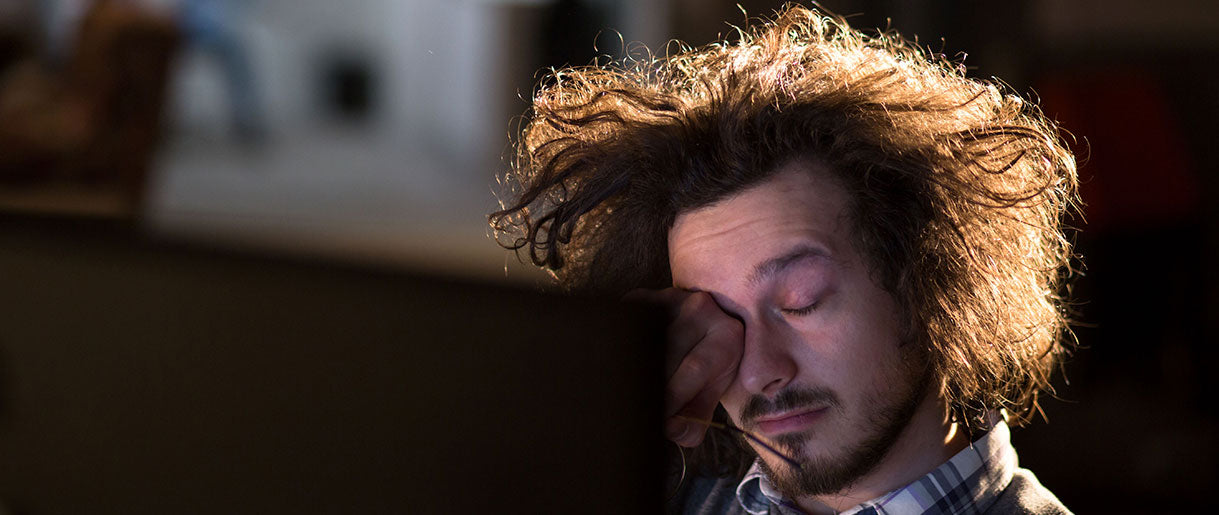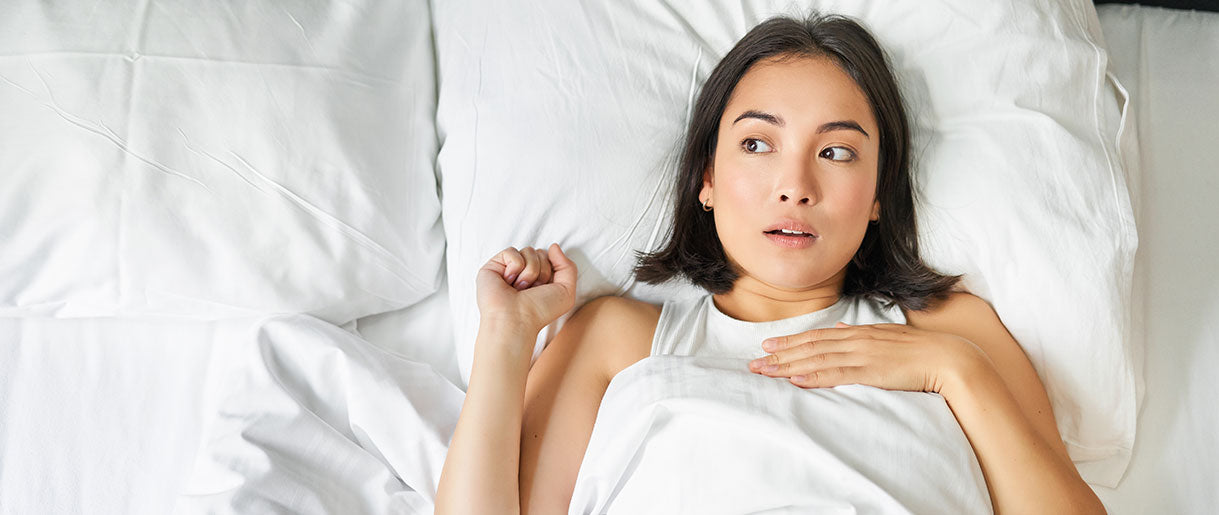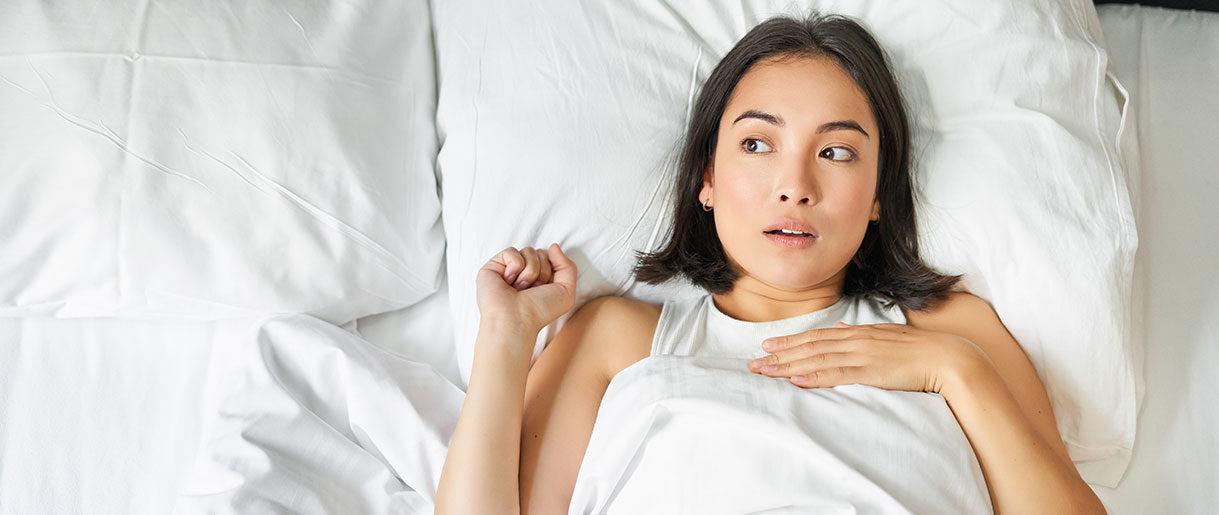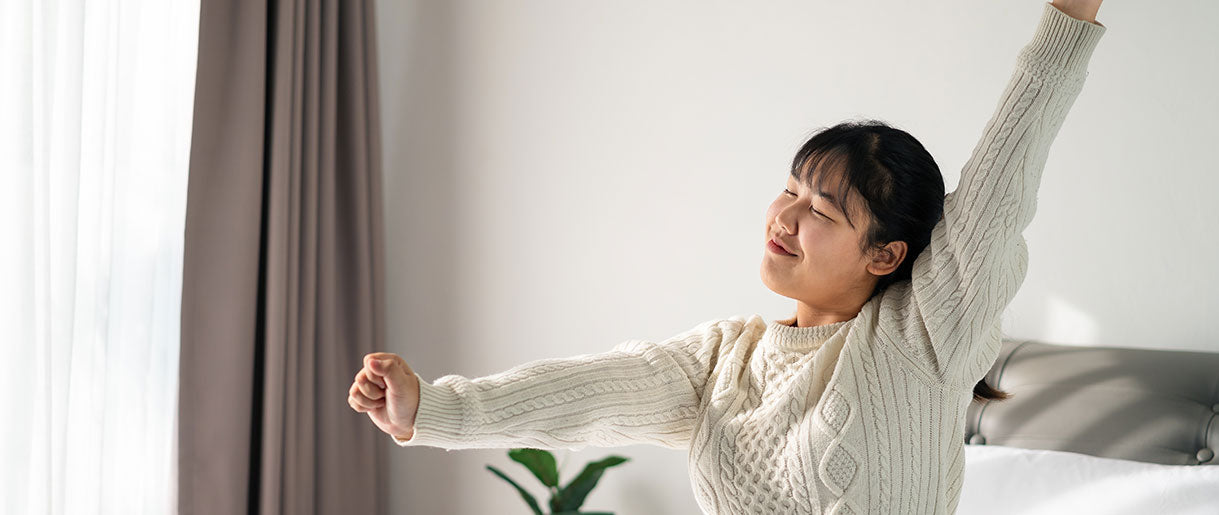Try a combination of physical activity, sensory stimulation, and mindful nutrition to get rid of sleepiness. Start by doing a quick burst of physical exercise, like jumping jacks or a brisk walk, to increase your heart rate and blood flow.
Follow this with a splash of cold water on your face or a brisk outdoor breeze to awaken your senses. For a more sustained effect, snack on energy-boosting foods like nuts or a piece of fruit, and hydrate well with water or green tea.
These strategies can effectively jolt your body and mind out of the drowsy state, helping you regain alertness and focus quickly. In this article, we'll delve deeper into these methods, exploring why they work and how you can incorporate them seamlessly into your busy schedule for an instant wake-up call.
1. Physical Activity
Struggling with daytime sleepiness? Here's a pro tip: engage in some physical activity—invest some minutes into morning exercises for energy.
It's a straightforward yet highly effective way to shake off that drowsiness. Physical exercises, like a short burst of jumping jacks or a brisk walk, do wonders in clearing mental fog and boosting your alertness.
They're not just movements; they're natural stimulants for your brain and body, helping you fight sleepiness and boost your energy levels.
- Increase Blood Flow and Oxygen: Exercises like push-ups and fast-paced walking drive more oxygen to your brain (1), clearing any mental fogginess and enhancing mental performance.
- Natural Energy Boost: Physical activity is a fantastic way to fight daytime fatigue. It revs up your energy levels (2), helping you stay awake naturally without relying on caffeine or other stimulants.
- Enhanced Mental Performance: Regular movement ultimately aids in keeping your mind sharp and focused, reducing the feeling of being tired and ensuring you're at your cognitive best (3).
Incorporating physical activity into your routine is more than just a quick fix for sleepiness; it's a long-term strategy for improved mental and physical well-being. Next time you struggle to keep your eyes open, remember that a few minutes of physical activity can be a game changer.
2. Cold Water Splash

Facing excessive daytime sleepiness? Sometimes, the simplest solutions are the most effective.
A splash of cold water on your face isn't just refreshing; it's a scientifically backed (4) method to combat that overwhelming urge to feel tired. This quick and easy trick can jolt your senses awake, offering an immediate reprieve from the grips of drowsiness.
- Instant Sensory Awakening: The shock of cold water on your skin rapidly stimulates your nervous system, instantly heightening your alertness and reducing sleepiness.
- Improves Mental Performance: A cold water splash helps you stay awake and contributes to clearer thinking, ultimately aiding mental performance and focus.
- Enhances Overall Mental Health: Regular use of this simple technique can complement your morning routine for mental health, reinforcing habits that contribute to quality sleep and wakefulness during the day.
Remember, while a cold water splash is a fantastic tool to diminish feelings of tiredness quickly, it's also part of a larger picture. It's about creating a balanced approach to your daily life that supports mental health.
3. Natural Light Exposure
Ever notice how a room bathed in natural light can energize you? That's not just a coincidence. Exposure to natural sunlight is a powerful tool in fighting off feelings of tiredness and lethargy to help you stay awake.
Whether stepping outside for a few minutes or positioning yourself near a bright window, sunlight (5) can significantly impact your ability to stay awake and focused, especially during those challenging work hours.
- Regulates Your Internal Clock: Natural light, particularly morning sunlight, helps synchronize your body's internal clock, reducing the likelihood of falling asleep unexpectedly and combating sleep disorders.
- Counters Dim Lighting Fatigue: Offices or homes with dim lighting aggravate fatigue. Substituting artificial light with high-quality sources of natural sunlight can dramatically increase alertness and provide a quick energy boost.
- Enhances Mood and Concentration: Sunlight doesn't just wake you up; it improves your mood and concentration levels. This is essential for staying productive and alert, particularly during long workdays.
Health experts often emphasize the importance of natural light in maintaining a healthy sleep-wake cycle (6). By incorporating more natural sunlight into your daily routine, you're not just choosing a method to stay awake at work but investing in a practice that promotes overall well-being and mental health.
4. Deep Breathing Exercises

Feel sleepy in the middle of a hectic day? Deep breathing exercises could be your go-to solution.
It's more than just taking in and out breaths; it's about engaging in a practice that enhances your blood oxygen levels, revitalizes your energy, and sharpens your focus. Let's dive into how these simple exercises can transform a sluggish moment into one of increased alertness and vitality.
- Stimulating Breath Technique: This technique, often called stimulating breath, involves short, rapid breaths to increase your energy and alertness. Here's how to do it:
Step #1: Sit comfortably and take a few normal breaths.
Step #2: Take quick, short breaths in and out through the nose, keeping the mouth closed.
Step #3: Do this for about 10 seconds, then resume normal breathing and notice the surge in energy.
- Oxygen Boost: Deep breathing exercises raise your blood oxygen levels, directly combating feeling sleepy. More oxygen to your brain means more energy and better focus.
- Meditation and Mindfulness: A brief flow-state meditation session focusing on your breath can significantly boost your energy levels in the morning. It provides a moment of calm, reduces stress, and refreshes your mind for the tasks ahead.
Incorporating deep breathing exercises into your daily routine is not just about responding to the immediate need to feel more awake. It's a sustainable practice that enhances overall well-being, ensuring you can handle those moments when sleepiness strikes.
5. Healthy Snacking
Battling the urge to fall asleep during a busy day? The solution might lie in what you snack on—think of foods that wake you up.
Choosing a healthy snack is not only about satisfying hunger; it's a strategic move to maintain your energy level and avoid the pitfalls of sugary snacks and excessive caffeine. Let's explore how the right snack choices can be your ally in staying alert and energized.
- Blood Sugar Stability: Opt for snacks that steady your blood sugar levels. Nuts, yogurt, or a piece of fruit are excellent choices. They provide sustained energy without the highs and lows associated with sugary snacks.
- Nutrient-Rich Choices: Only high-quality sources of nutrition will do when you need to boost energy. These snacks are packed with essential nutrients that support overall health and help control blood pressure, contributing to better sleep quality and disease control.
- Avoiding Sleep Disorders and Sleep Loss: Poor sleep can lead to sleep disorders, and unhealthy eating habits can exacerbate this. A healthy snack can provide an immediate energy boost and contribute to sound sleep and enough sleep time, as sleep specialists recommend.
Remember, when you consume a healthy snack, you do more than just quell hunger. You're making a conscious decision to fuel your body with what it needs to stay active and alert.
6. Hydration

Feeling sluggish and can't seem to shake it off? Before reaching for another cup of coffee, consider this: drinking water might be the simplest yet most effective way to ward off sleepiness.
Hydration plays a crucial role in how we function, both in our personal and professional lives, and neglecting it can lead to fatigue that affects our performance and safety.
- Combat Dehydration-Induced Sleepiness: A glass of cold water can do wonders for your alertness (7), especially when dehydration is the culprit behind your drowsiness. Dehydration can subtly creep up on you, causing fatigue that impacts everything from your focus at work to your reaction times while driving.
- Enhance Post-Meal Alertness: Feeling drowsy after a light lunch? Drink water. It helps digestion and prevents the lethargy that often follows a meal, keeping you alert and ready to tackle the rest of your day.
- Prevent Drowsy Driving: Hydration is vital in situations requiring constant attention, like driving. Drinking water can help prevent the dangerous effects of drowsy driving by keeping your mind clear and responsive.
Incorporating adequate hydration into your morning routine for energy is a simple yet powerful step towards maintaining high energy levels and staying awake when it matters most.
7. Power Nap
In the fast-paced rhythm of our lives, feeling tired can often seem inevitable, especially when we're sleep-deprived. But here's a tip from sleep specialists that might just be the game-changer you need: a power nap.
Far from being a luxury, a quick 10- to 20-minute nap can be a practical tool for combating chronic fatigue and boosting performance.
- Immediate Alertness Boost: Taking a nap, even a short one, can significantly boost alertness. This is especially beneficial if you're feeling the effects of sleep deprivation or just consumed caffeine and need an extra kick of energy.
- Improves Cognitive Performance: A power nap refreshes your mind and enhances cognitive functions (8), making it easier to tackle complex tasks with renewed focus.
- Combats Chronic Fatigue and Sleep Disorders: Regular short naps can be part of a larger strategy to manage chronic fatigue and prevent sleep disorders. Some workplaces even provide nap rooms to support this healthy habit.
While napping, it's advisable to rest in a dark room or use an eye mask to block out bright light, as this can interfere with the quality of your nap. Remember, when it comes to napping, it's not about sleeping for long hours; it's about giving your brain and body the quick rest they need to function at their best.
8. Chewing Gum

In the quest to stay alert, especially under conditions that aggravate fatigue like low blood sugar or dim lighting, chewing gum emerges as an unexpectedly powerful ally. This simple activity, often overlooked, can be a practical tool in your arsenal against sleepiness, as evidenced by various peer-reviewed studies.
- Increases Circulation and Alertness: The act of chewing gum stimulates blood flow to the brain (9), which can help increase wakefulness and reduce feelings of sleepiness. It's a quick, easy way to give yourself a mental lift.
- Helps in Regulating Blood Pressure: Chewing gum lowers blood pressure (10), contributing to a more relaxed yet alert state, perfect for situations where you need to stay focused.
Incorporating the habit of chewing gum into your daily routine is more than just a means to freshen your breath. It's a scientifically backed method to stay alert and maintain focus, especially when you need a quick and effective solution to fight off sleepiness.
9. Engage Your Mind
In the ebb and flow of daily life, both in our work and personal spheres, we often encounter moments of sleepiness, especially after monotonous tasks. The key to overcoming this lethargy is engaging your mind with more stimulating tasks.
By switching to activities that require active thinking or problem-solving, you not only combat feelings of sleepiness but also enhance your overall productivity and enjoyment of your responsibilities.
- Seek More Engaging Work Tasks: If you're feeling drowsy, try shifting to a work responsibility that's more engaging or challenging. This transition can quickly re-energize your mind, requiring active engagement and critical thinking.
- Incorporate Problem-Solving Activities: Engaging in problem-solving tasks can be a great way to wake up your brain. Whether a complex work project or a brain-teaser puzzle, these activities demand focus and mental agility, effectively countering sleepiness.
- Balance in Personal Life: In your personal life, choose hobbies or activities that are mentally stimulating. This keeps sleepiness at bay and contributes to a more fulfilling and active lifestyle.
By consciously choosing to engage in more stimulating tasks, you're fighting off immediate sleepiness and enriching your overall experience in both your professional and personal life. This approach keeps you alert and ensures that your days are filled with varied and engaging activities that stimulate your mind and keep you on your toes.
10. Listen to Upbeat Music

When sleepiness starts to creep in, whether during a busy workday or amid a sluggish moment in your personal life, one of the most enjoyable and effective remedies is to listen to upbeat music.
The power of energetic tunes goes beyond mere entertainment; it profoundly affects our mood and energy levels, providing a delightful escape from the urge to sleep.
- Elevates Mood and Energy: Upbeat music is a natural stimulant for emotions and energy. The lively rhythms and melodies can quickly shift your mood, injecting a sense of vitality and enthusiasm into your day.
- Reduces Sleepiness: The stimulating nature of energetic music can effectively reduce feelings of sleepiness. It's like an auditory caffeine shot, giving you a much-needed boost without side effects.
- Enhances Focus and Productivity: Not only does upbeat music help in warding off drowsiness, but it also enhances focus and productivity throughout the day. It creates a positive and dynamic environment, making tackling tasks with renewed vigor easier.
So next time you feel your eyelids drooping or a yawn coming on, let the music come to your rescue. Play your favorite upbeat tracks, and let the rhythms rejuvenate your spirit and energy.
FAQs About How to Get Rid of Sleepiness Instantly
What Are Quick Ways To Wake Yourself Up When Feeling Sleepy?
To quickly wake yourself up, engage in a short burst of physical activity, like jumping jacks or a brisk walk. This increases blood circulation and oxygen flow to the brain, providing an immediate energy boost.
Another effective method is to splash your face with cold water, which shocks the system and heightens alertness. Additionally, eating a small, healthy snack like nuts or a piece of fruit can stabilize blood sugar levels, providing a sustained energy boost.
How Can I Stay Awake At Work Without Consuming Caffeine?
To stay awake at work without caffeine, try incorporating natural light exposure, such as sitting near a window or taking short breaks outside. Natural light helps regulate your body's circadian rhythm, enhancing wakefulness.
Engaging your mind in more stimulating tasks can also keep sleepiness at bay. Switch to a task that requires active thinking or problem-solving. If possible, listen to upbeat music, as it can elevate mood and increase energy levels. Lastly, stay hydrated, as dehydration can lead to fatigue.
Are Power Naps Effective In Reducing Daytime Sleepiness?
Yes, power naps can effectively reduce daytime sleepiness. A short nap of 10 to 20 minutes can significantly boost alertness and cognitive performance without leaving you feeling groggy or interfering with nighttime sleep.
Power naps benefit people who are sleep-deprived or those experiencing chronic fatigue. However, keeping naps short is essential to avoid entering deeper sleep stages, which can lead to sleep inertia. For best results, nap in a quiet, dark environment and consider using a sleep mask to block out light.
Key Takeaways
As we wrap up our journey through these dynamic and effective strategies to combat sleepiness, remember that each day is an opportunity to be your most vibrant and alert self.
Whether you're doing jumping jacks to kickstart your morning, splashing cold water on your face for a quick wake-up, or snacking on almonds for a steady energy boost, these methods are here to empower you. Embrace the rhythm of upbeat music to lift your spirits, bask in the glow of natural sunlight to align your internal clock, or indulge in a power nap to recharge your cognitive batteries.
Remember, the fight against sleepiness is personal, and what works wonders for one person may be different for another. It's all about finding the right mix that resonates with your lifestyle and body's needs. Experiment with these strategies, combine them as you see fit, and note how they enhance your daily productivity and overall well-being.
We're eager to hear about your experiences and discoveries in this quest to stay awake and energized. Did a particular strategy work exceptionally well for you? Do you have any tips or insights to share? Drop a comment below and join the conversation.
References
- Aerobic Interval Training Impacts Muscle and Brain Oxygenation Responses to Incremental Exercise, (1), https://www.ncbi.nlm.nih.gov/pmc/articles/PMC6764183/
- The Effect of Chronic Exercise on Energy and Fatigue States: A Systematic Review and Meta-Analysis of Randomized Trials, (2), https://www.ncbi.nlm.nih.gov/pmc/articles/PMC9206544/
- Effects of Physical Exercise on Cognitive Functioning and Wellbeing: Biological and Psychological Benefits, (3), https://www.ncbi.nlm.nih.gov/pmc/articles/PMC5934999/
- The Effect of Cold Showering on Health and Work: A Randomized Controlled Trial, (4), https://www.ncbi.nlm.nih.gov/pmc/articles/PMC5025014/
- Benefits of Sunlight: A Bright Spot for Human Health, (5), https://www.ncbi.nlm.nih.gov/pmc/articles/PMC2290997/
- Effects of light on human circadian rhythms, sleep and mood, (6), https://www.ncbi.nlm.nih.gov/pmc/articles/PMC6751071/
- Water supplementation after dehydration improves judgment and decision-making performance, (7), https://link.springer.com/article/10.1007/s00426-018-1136-y
- Effects of a Short Daytime Nap on the Cognitive Performance: A Systematic Review and Meta-Analysis, (8), https://www.ncbi.nlm.nih.gov/pmc/articles/PMC8507757/
- Chewing Gum: Cognitive Performance, Mood, Well-Being, and Associated Physiology, (9), https://www.ncbi.nlm.nih.gov/pmc/articles/PMC4449949/
- The effect of gum consumption on blood pressure as a risk factor for coronary heart disease: A meta-analysis of controlled trials, (10), https://pubmed.ncbi.nlm.nih.gov/33472439/









Let Us Know Your Comments